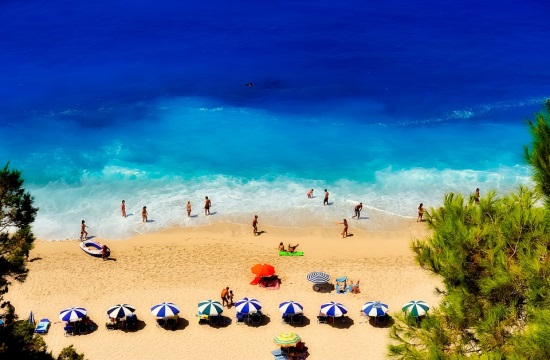Despite the impressive performance of Greek tourism over the past decade—with continuous increases in arrivals and revenue—the pressing question now is: where is Greek tourism heading? According to an analysis by GBR Consulting, the absence of a structured, long-term strategic plan is the weakest point of Greece’s tourism model—and possibly the greatest risk to its future.
In the company’s report, published in its latest quarterly newsletter, it is clearly stated that Greece still lacks a defined vision for tourism: a long-term goal, a desirable future, supported by a modern strategy capable of making that vision a reality.
Tourism Is Undermining Greece’s Image
As GBR Consulting notes, the current path of growth not only fails to protect the elements that make Greece attractive—it is eroding them. This includes pressure on local communities and the environment, over-tourism in historic destinations, and the distortion of cultural identity.
The study emphasizes that tourism should serve local communities—not displace them. It should support the preservation of cultural heritage—not erase it in the name of commercialization.
The Right “Ingredients” Are There
Greece possesses all the essential advantages: a unique mosaic of landscapes, vibrant traditions, local cuisines, strong regional identities, a welcoming population, and a strong international tourism brand. However, as GBR Consulting highlights, the direction taken so far requires radical, coordinated, and enforced corrections.
10 Proposals for a New Strategy
The study proposes specific steps to build a sustainable, long-term strategy:
Define national goals and priorities in measurable terms.
Effectively measure tourism’s total impact—not just economic, but also social, environmental, and cultural.
Complete and implement spatial planning at both national and local levels.
Promote projects with a positive sustainability footprint.
Restructure and reposition destinations with a focus on quality, not quantity.
Ensure effective allocation of development rights.
Limit the uncontrolled spread of short-term rentals.
Consistently apply environmental, social, and cultural regulations.
Upgrade critical infrastructure (transportation, water supply, sewage, waste management).
Utilize tourism taxes to support actions addressing natural disasters and climate change adaptation.
If Not Now, When?
GBR Consulting stresses that every delay makes changing course more difficult. If Greece continues on its current path, there is a serious risk that the promise of its tourism brand will become meaningless.
The Role of DMMOs and Investors
Destination Management and Marketing Organizations (DMMOs), which are starting to appear in various parts of the country, are expected to play a vital role in shaping the future. But for them to function meaningfully, a clear national vision, a strong regulatory framework, and sufficient resources are essential.
At the same time, investors and funders also play a critical role: if they align their projects with a long-term strategy, they will not only secure their investments but also create value for local communities and the environment.
What’s at Stake
Greece stands at a critical crossroads. Tourism is one of the main pillars of its economy, but the lack of a clear, coordinated, and sustainable framework threatens its very tourism identity. The question is no longer whether a strategy is needed—but when and with what plan it will be shaped and implemented.
